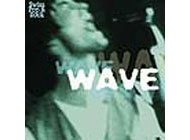Pop & Rock in Switzerland – From the Beginnings until 1985 (4)

Wave: Rock as Revolution CD anthology Vol.4/5 swissinfo in collaboration with SUISA Foundation
A refreshing breeze
Rock music in Switzerland slumped into a crisis during the mid-seventies. The charts were dominated by frivolous pop songs while “serious” rock musicians reveled in a bombastic, ostentatious style that won the interest of a few. A refreshing breeze began to blow in from England and the United States in 1976: pub rock, punk and new wave were new styles that returned to the roots of rock’n’roll. This new, old style of rock wanted to live and not exist merely as art, thereby breaking out of the dreary, daily worries of the economic depression of the seventies.
Zurich is Burning
Rock was becoming increasingly more revolutionary throughout Switzerland. By 1977 spiky punks had snatched up their guitars and were screaming against everything that was cramping and restricting them: the dreary gray of daily life in Switzerland, the general social climate that seemed enemy to any kind of pleasure. The movement was sparked off in Geneva, Bern and Biel. Zurich soon followed becoming the new center of the young fad due to its many clubs and fashion shops, hosting some of the main representatives of the movement, bands such as Nasal Boys, Hertz, Troppo, Sperma, TNT and Mother’s Ruin.
There were a number of parallels between the punk movement and the wild sonorities of the beat style from the sixties. Punk’s statements, however, were sharper and more political: Sarah TNT declared that “Züri brännt” (Zurich is burning). And for the first time woman played a major role in a music movement. The female band Kleenex went on tour in England shortly after their founding, earning widespread popularity with their dada-like style. Many other of the Swiss punk bands were grouped around a female singer.
Electronics take over
By the time the first wave of enthusiasm for punk had appeased at the beginning of the eighties audiences had become very political: “We want everything and we want it now” was the cry of the youth in the streets,and even when they had calmed somewhat they still demanded at least “an unobstructed view of the Mediterranean”.
Electronic music began to play an increasingly important role next to the familiar elements of rock’n’roll and reggae. Bands such as Grauzone with the later pop star Stephan Eicher, Yello and Blue Chinareflected the icy feeling of the post-punk generation and a sort of hangover after the wild punk parties of the seventies. The combination of the classical pop song with new technologies and a diferent, darker kind of feeling shaped Swiss pop muisc in the eighties.
swissmusic swissinfo

In compliance with the JTI standards
More: SWI swissinfo.ch certified by the Journalism Trust Initiative
You can find an overview of ongoing debates with our journalists here. Please join us!
If you want to start a conversation about a topic raised in this article or want to report factual errors, email us at english@swissinfo.ch.